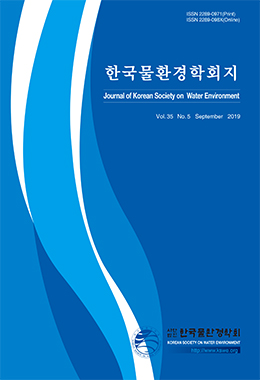Recently, people have been attracting attention to the good quality of water resources as well as water welfare. to improve the quality of life. This study is a papers on the prediction of benthic macroinvertebrate index (BMI), which is a aquatic ecological health, using the machine learning based CFS (Correlation-based Feature Selection) method and the random forest model to compare the measured and predicted values of the BMI. The data collected from the Han River’s branch for 10 years are extracted and utilized in 1312 data. Through the utilized data, Pearson correlation analysis showed a lack of correlation between single factor and BMI. The CFS method for multiple regression analysis was introduced. This study calculated 10 factors(water temperature, DO, electrical conductivity, turbidity, BOD, NH3-N, T-N, PO4-P, T-P, Average flow rate) that are considered to be related to the BMI. The random forest model was used based on the ten factors. In order to prove the validity of the model, R2, %Difference, NSE (Nash-Sutcliffe Efficiency) and RMSE (Root Mean Square Error) were used. Each factor was 0.9438, -0.997, and 0,992, and accuracy rate was 71.6% level. As a result, These results can suggest the future direction of water resource management and Pre-review function for water ecological prediction.




